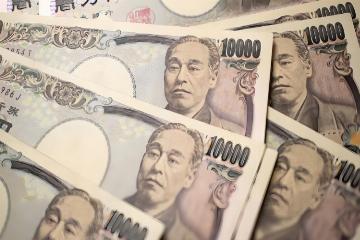Continued Expansion of Japan's Service Industry
Advertisements
The economic landscape of Japan has shown a remarkable transformation, particularly within the service sectorAs October came to a close, a flurry of favorable catalysts seemed to intertwine, igniting a robust growth narrative that has persisted into DecemberThis development marks the second consecutive month of expansion, painting a vibrant picture at the year's endA powerful market demand acts as a dynamic engine, propelling the service industry forward, while corporate expansion remains unwavering, with both elements mutually reinforcing each other to foster upward momentum in the sector.
According to meticulously curated data from S&P Global Market Intelligence, the final reading of Japan’s Services Purchasing Managers' Index (PMI) for December reached 50.9, an increase from November's 50.5. While this figure saw a slight dip from the initial estimate of 51.4, it has consistently hovered above the neutral threshold of 50 for two consecutive months, signifying economic growth.
Usamah Bhatti, an economist from S&P Global Market Intelligence, commented on the December data, noting, "The figures reflect a strong performance in Japan's service sector, with ongoing growth in business activity and new orders." The latest survey results vividly illustrate the vibrancy of this industry
Advertisements
Specifically, in December, the new business index climbed for the sixth consecutive month, resembling the emergence of fresh bamboo shoots in spring—a clear indication of the influx of new clientele, particularly from the domestic market, which has surged impressively.
In recent times, Japan's job market has been emitting optimistic signals, with stable increases in employment numbers reflecting a sustained rise for fifteen consecutive monthsHowever, a subtle shift has emerged in recent months, as the growth rate appears to have decelerated compared to NovemberFurther investigation revealed that surveyed businesses are methodically hiring more staff based on carefully crafted expansion plans.
As December unfolded, corporate confidence remained strong, although the optimism somewhat diminished compared to NovemberParticipating companies expressed hopeful expectations for growth in demand and activity over the coming year, displaying a cautious but positive outlook.
Amidst these optimistic developments, inflation in Japan remained a pressing concern
Advertisements
Data showed that inflation rates persisted at elevated levels, primarily driven by a tight labor market that caused labor costs to spiral upward, along with constrained raw material supplies that contributed to a steady price increaseConsequently, many companies found themselves compelled to transfer the burden of rising costs onto consumers in order to protect profit marginsDespite these pressures, the overall price fluctuations in December were relatively stable when compared to the previous month.
The Composite PMI saw a modest improvement to 50.5 in December from 50.1 in NovemberHowever, the uptick in service sector inflation in November elevated the likelihood of an interest rate hike by the Bank of Japan (BoJ). Bank of Japan Governor Kazuo Ueda remarked that it is crucial for the central bank to monitor developments globally, particularly in relation to policies instituted by the United States.
The Bank of Japan is scheduled to hold its next policy meeting from January 23 to 24, where crucial decisions regarding monetary policy will be deliberated
Advertisements
The currency market anticipates a gradual tightening of BoJ policies, with expectations for a 25 basis point rate hike by May, and possibly another hike before the year concludes.
At this juncture, the Bank of Japan finds itself at a critical crossroads in its monetary policy, grappling with difficult decisions, especially regarding the timing of future interest rate increasesWith inflation rates having been sustained at or above the BoJ's 2% target for over two and a half years, the economic implications of this persistently high inflation create numerous variables for economic operabilityA timely rate hike could not only effectively curb soaring inflation but could also provide strong support for the beleaguered and persistently sluggish yen.
Ueda has identified US policies as one of the primary uncertainties that warrant careful considerationBy March, he aims to acquire a clearer understanding of the US economy and trends in domestic wages in Japan
- Stocks on Brink? Fed Rate Hike Debate Heats Up
- Transaction Banks Tap Platform Strategy for Growth
- Strong Demand for Global Electric Vehicle Market
- Treasury Yields Hit New Low Amid Wealth Shift
- Crossroads of Wealth: Where Do You Stand?
This timeline could also afford Prime Minister Shiro Ishiba’s minority government additional time to maneuver through budget considerationsUltimately, the behavior of the yen may serve as a decisive factor in these economic discussions.
Taro Kimura, an economist with Bloomberg Economics, remarked, “Ueda’s cautious stance during the December meeting indicates that the Bank of Japan wishes to retain some leeway for action when market and political conditions favor such movesWe remain firm in our belief that the Bank of Japan will raise rates in January, as inflation increasingly appears poised to remain close to the Bank's 2% targetAdditionally, a plunge in the yen will enhance the likelihood of an interest rate hike.”
This intricate interplay of economic indicators—PMI data, inflation trends, and corporate sentiments—paints a vivid picture of Japan's current economic environment
